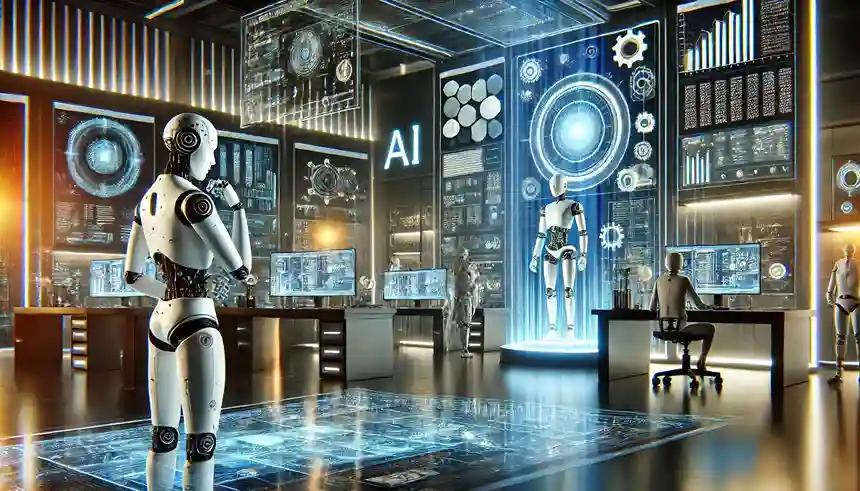A leading figure in artificial intelligence (AI) has predicted the technology will undergo another major revolution within the next few years.
Yann LeCun, Meta’s chief AI scientist and one of the “godfathers” of modern AI, said the changes will be driven by breakthroughs that are essential for creating fully autonomous robots and vehicles.
He said current AI systems, despite recent advancements, are still too limited to tackle challenges like building domestic robots or fully autonomous cars.
Speaking at the Queen Elizabeth Prize for Engineering ceremony, LeCu said new breakthroughs are required for AI to better understand and interact with the physical world.
[wpcode id=”69173″
AI’s Limitations and the Road Ahead
LeCun’s comments come as AI continues to evolve, particularly after the launch of OpenAI’s ChatGPT, which has captured global attention.
However, LeCun argued the technology still has far to go before it can match the complexity of human or animal intelligence.
While AI excels at manipulating language, it struggles to understand the physical environment.
He said:
“There are still a lot of scientific and technological challenges ahead.
“It’s very likely that there’s going to be yet another AI revolution over the next three to five years because of the limitations of current systems.”
He added to achieve true autonomy, AI systems must develop the ability to understand how the world functions.
LeCun’s work focuses on creating systems that can “understand” the world by developing predictive models of physical reality.
While current systems fall short, LeCun sees progress in creating machines that could someday achieve intelligence levels comparable to a cat or rat.
He said:
“If we get a system that is as smart as a cat or a rat, that would be a victory.”
AI Safety Concerns and Global Collaboration
Fellow AI pioneer Yoshua Bengio, another winner of the prestigious Queen Elizabeth Prize, echoed concerns about the technology’s safety.
Speaking at the ceremony, Bengio urged world leaders to consider the enormous power AI has the potential to wield.
He said:
“I’d like to see the leaders of this world to better understand the magnitude of what we are doing.”
In 2018, Bengio, LeCun, and Geoffrey Hinton, who was also honored with the Queen Elizabeth Prize this week, shared the Turing Award – often regarded as the computing equivalent of the Nobel Prize.
The recent recognition of AI pioneers comes shortly after two Nobel Prizes in 2024 were awarded to Hinton, alongside physicist John Hopfield, and Google DeepMind scientists who won the Nobel in Chemistry.
The Key Players in AI Development
Machine learning, a vital process in AI development, is central to the current wave of innovation.
Rather than being explicitly programmed, AI systems learn from data, allowing them to make predictions or decisions, such as determining the next word in a sentence.
In addition to LeCun, Bengio, and Hinton, other recipients of the 2025 Queen Elizabeth Prize include Fei-Fei Li, who created the ImageNet dataset critical for object recognition in AI, and Jensen Huang and Bill Dally of Nvidia, the leading company behind the chips used to power and train AI systems.
The prize’s impact is felt across industries, economies, and societies, as machine learning continues to reshape countless sectors.
Patrick Vallance, chair of the QEPrize foundation and the UK science minister, emphasized that the prize acknowledges the transformative influence of AI innovations on billions of lives around the world.
As AI continues to develop, its creators are not only pushing the boundaries of technological progress but also grappling with the challenges and ethical dilemmas that come with such immense power.




